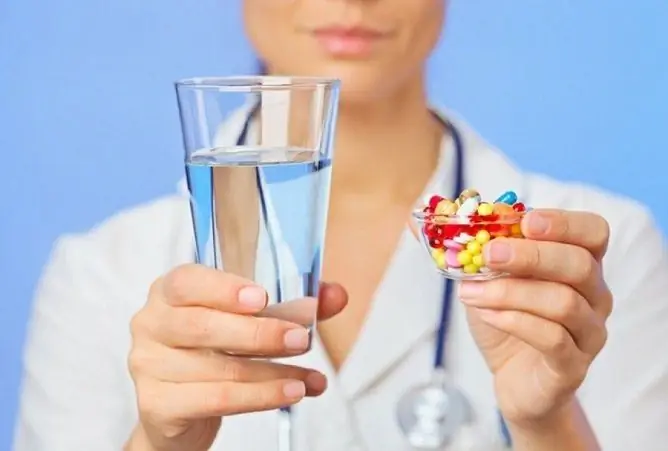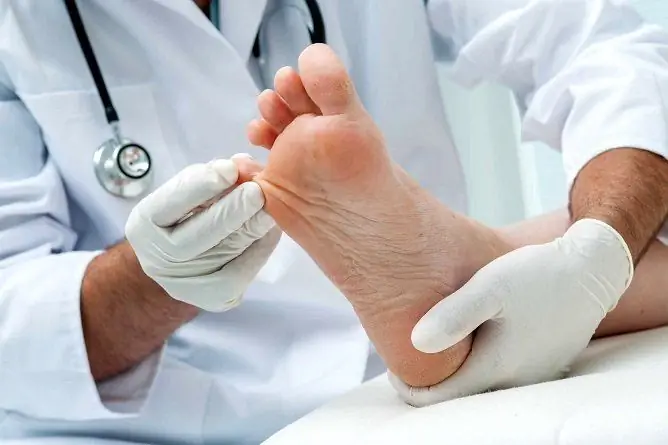How to get rid of heartburn at home: medicines and folk remedies
The content of the article:
-
How to get rid of heartburn quickly
- Medications
- General recommendations
-
What to take for heartburn at home
- Baking soda
- Potato juice
- Aloe
- What is heartburn and what causes it?
- Diagnostics
- Video
How to get rid of heartburn? The answer to this question is sought by millions of people around the world who have experienced this unpleasant sensation at least once in their lives. However, many of them believe that heartburn is a harmless phenomenon that cannot harm the body. But in fact this is not so, and with regular heartburn, its elimination is not enough, it is necessary to find out the cause and get rid of it.

You can quickly relieve heartburn with medicines and folk methods.
How to get rid of heartburn quickly
Medications
You can eliminate heartburn with the following medicines:
| Group | Trade names | Mechanism of action |
| Antacids | Reni, Phosphalugel, Maalox, Almagel | The hydrochloric acid contained in the gastric juice is neutralized. They have a fast, strong and effective action. Antacids containing aluminum are contraindicated in pregnancy. |
| Alginates | Sodium alginate | A protective layer is formed on the surface of the stomach, which remains until it is completely empty. Pregnancy is not a contraindication to their use. |
| H2-histamine receptor blockers | Ranitidine, Famotidine | They have an antisecretory effect by blocking the histamine H 2 receptors of the gastric parietal cells. |
| Proton pump inhibitors | Omeprazole, Pantoprazole, Rabeprazole | They block the proton pump of H + / K + -ATPase in the parietal cells of the gastric mucosa. This leads to a decrease in the secretion of hydrochloric acid. The medicine should only be used as directed by a doctor. |
| Sorbents | Activated carbon | Absorbs excess gastric acid hydrochloric acid. |
General recommendations
Lifestyle changes can also reduce the number of episodes of gastroesophageal reflux. Patients are advised to:
- do not consume citrus fruits, spicy and fatty foods, coffee, strong tea, chocolate, alcoholic beverages and other products that enhance the secretory function of the stomach;
- eat often, but in small portions;
- do not eat immediately before bedtime;
- normalize body weight;
- quit smoking;
- refuse to wear clothes that tighten the abdominal wall;
- drink water after eating to clean the esophagus from accumulated food particles.
To eliminate heartburn that occurs at night, you should sleep on a bed with a high headboard.
If the cause of gastroesophageal reflux is any disease of the digestive system, then it is treated as directed by a gastroenterologist. It is necessary to understand that it is possible to firmly overcome heartburn only if the root cause of its occurrence is eliminated.
What to take for heartburn at home
Traditional medicine recommends many methods that are good at helping to defeat heartburn. But they all remove only the symptom, without affecting the cause of the disease. In addition, there are contraindications to the use of folk remedies. Nevertheless, many of the methods of traditional medicine can be used in cases where it is urgently necessary to stop heartburn, and there are no necessary medications at home. Let's consider the most effective recipes.
Baking soda
The regular baking soda found in the kitchen in any home is a simple and effective handy tool to bring down heartburn without pills. To get rid of the discomfort behind the breastbone, dissolve ½ teaspoon of soda powder in a glass of warm water and extinguish it by adding 5 ml of 9% table vinegar. The solution is drunk immediately after preparation in small sips.
Despite the fact that baking soda provides quick relief, it often cannot be used to relieve the manifestations of gastroesophageal reflux. The fact is that too rapid alkalization of the internal environment of the stomach activates the functions of parietal and G-cells, which leads to a sharp increase in the acidity of gastric juice.
Potato juice
Potato juice is an excellent remedy for heartburn. Due to its complete naturalness, it can be used to relieve heartburn even for pregnant women.
It should be done immediately before use. To do this, take three large tubers (no sprouted or green areas). Rinse them thoroughly under running water, peel and grate on a fine grater. Fold the resulting mass into a piece of clean gauze and squeeze out the juice. To precipitate the starch, the juice is allowed to stand for 2-3 minutes.
Juice is drunk in a glass every day an hour before breakfast. The course of treatment is 10 days. After that, you need to take a ten-day break, and then the course is repeated. It is impossible to increase the duration of taking potato juice or its amount, as this can have a negative effect on the state of the pancreas.
Contraindications to the use of potato juice are:
- decompensated course of diabetes mellitus;
- chronic gastritis with low acidity;
- acute and chronic pancreatitis.
Aloe
Due to its composition, rich in biologically active substances, aloe helps to suppress the inflammatory process in the gastric mucosa, normalize the secretory function of its cells. The most active components of aloe are:
- anthraquinone, steroid compounds, ascorbic acid - have anti-inflammatory, wound healing and regenerating effects;
- B vitamins, organic acids, minerals - normalize the secretion of hydrochloric acid by the parietal cells of the stomach;
- flavonoids, tannins, phenols, bitterness and anthraglycosides - have antimicrobial action.
To make the juice, cut and wash a few aloe leaves thoroughly. Then grind them with a blender and squeeze the juice from the resulting mass through gauze folded in several layers. Add 10 ml of the resulting juice and a teaspoon of honey to a glass of warm boiled water. Stir and drink when heartburn occurs.
Aloe should not be used for colitis accompanied by diarrhea.
What is heartburn and what causes it?
Heartburn (gastroesophageal or gastroesophageal reflux) is a burning sensation or discomfort behind the breastbone that extends from the epigastric (epigastric) region to the neck.
Normally, the lower gastroesophageal sphincter should only open when the food lump passes from the esophagus into the stomach. With the weakening of this sphincter, regurgitation (retrograde) flow of acidic and aggressive gastric juice into the esophagus occurs, which leads to heartburn.
This symptom is often seen in pregnant women. In the latter case, its occurrence is explained by an increase in intra-abdominal pressure during pregnancy, which creates the prerequisites for the reflux of gastric juice into the esophagus.
Other factors that increase your risk of heartburn are:
- the use of fatty foods, strong tea, coffee, chocolate, mint and alcoholic beverages;
- binge eating;
- eating food just before going to bed;
- smoking;
- wearing too tight clothing that squeezes the anterior abdominal wall;
- hernia of the esophageal opening of the diaphragm.
If heartburn attacks recur often enough, they are most likely caused by one of the following diseases of the gastrointestinal tract (GIT):
- gastroesophageal reflux disease;
- esophagitis;
- peptic ulcer of the esophagus;
- strictures of the esophagus;
- Barrett's esophagus;
- adenocarcinoma of the esophagus;
- gastritis with high acidity;
- peptic ulcer of the stomach and duodenum;
- disorders of the motor function of the esophagus, stomach and / or duodenum.

There are ways to get rid of heartburn quickly, but this should not be confused with treating the underlying condition.
The main symptoms of these pathologies are:
| Disease | Symptoms |
| Gastroesophageal reflux disease | Patients complain of eructation of acidic gastric contents, which increases in the horizontal position of the body. They are worried about pain in the chest region, radiating to the left half of the chest, lower jaw and neck, to the interscapular region. Due to the ingress of hydrochloric acid into the respiratory tract, dry cough and shortness of breath may occur. |
| Esophagitis | With inflammation of the esophageal mucosa, patients complain of difficulty swallowing, chest pain, heartburn, nausea and vomiting. |
| Peptic ulcer of the esophagus | Characterized by pain in the chest region, aggravated by eating. In addition, the symptoms of peptic ulcers are dysphagia, heartburn, vomiting mixed with blood. |
| Esophageal strictures | Dysphagia is the leading sign. Eating dry food leads to pain in the chest area, increased salivation. With a high localization of stenosis, pieces of food enter the respiratory tract, which leads to attacks of dry cough, laryngospasm. |
| Barrett's esophagus | Precancerous disease. It is characterized by: prolonged heartburn, dysphagia, vomiting of blood, pain in the epigastric region, loss of body weight. |
| Adenocarcinoma of the esophagus | The primary symptoms of esophageal cancer are: increased salivation, chest pain, dysphagia, regurgitation of food, feeling of coma behind the breastbone. |
| Acidic gastritis | With an exacerbation of the disease, patients complain of pain and heaviness in the epigastric region, belching, heartburn, and nausea. Sometimes after a meal, vomiting with an admixture of bile may occur. |
| Peptic ulcer | Pain in the upper abdomen, nausea and vomiting, sour belching, weight loss. |
Diagnostics
With frequent heartburn, the patient should consult a gastroenterologist. The doctor will collect a history of life and disease, conduct an objective examination and prescribe the necessary examination, which may include the following methods of instrumental and laboratory diagnostics:
- FEGDS. This method of endoscopic diagnosis allows the doctor to examine the mucous membrane of the esophagus, stomach, and duodenum. If necessary, a small area of the altered tissue is taken for histological and cytological analysis.
- X-ray of the gastrointestinal tract using contrast. This study is not informative enough and is currently carried out mainly only with the patient's categorical refusal from FEGDS.
- Daily pH metry. Allows for the determination and registration of acidity at several points of the stomach and esophagus.
- Esophageal manometry. Allows you to assess the motor function of the esophagus and the locking capacity of its lower sphincter.
Video
We offer for viewing a video on the topic of the article.

Elena Minkina Doctor anesthesiologist-resuscitator About the author
Education: graduated from the Tashkent State Medical Institute, specializing in general medicine in 1991. Repeatedly passed refresher courses.
Work experience: anesthesiologist-resuscitator of the city maternity complex, resuscitator of the hemodialysis department.
Found a mistake in the text? Select it and press Ctrl + Enter.







